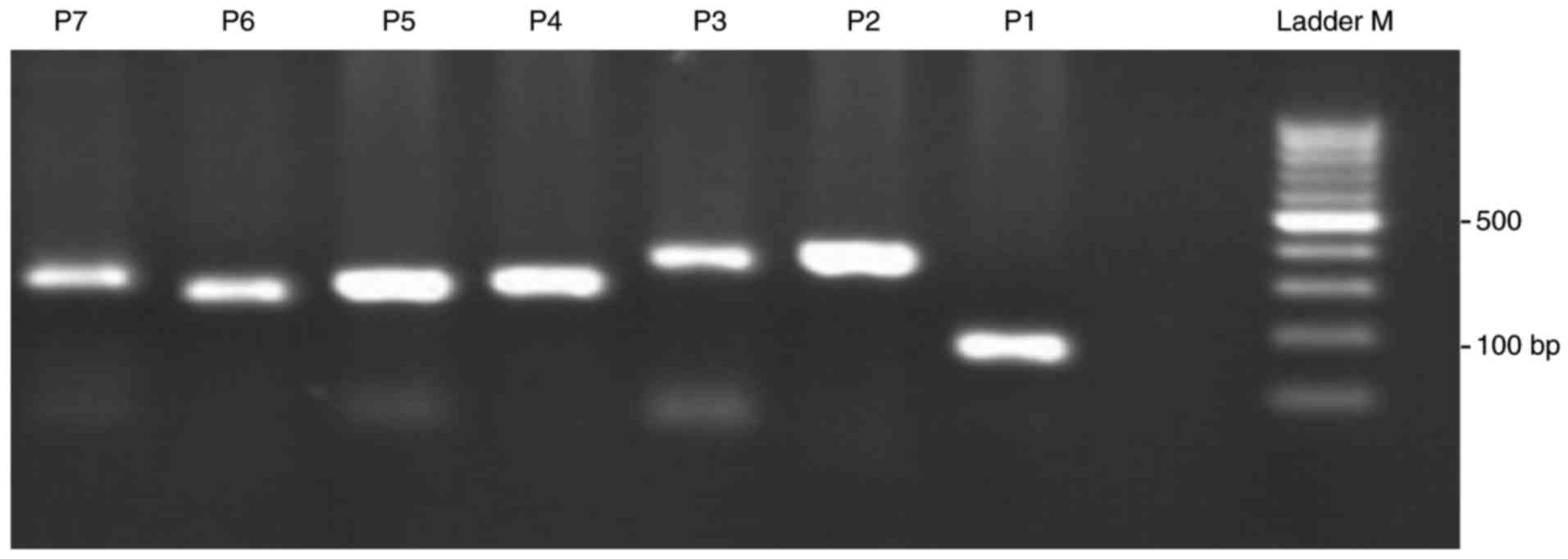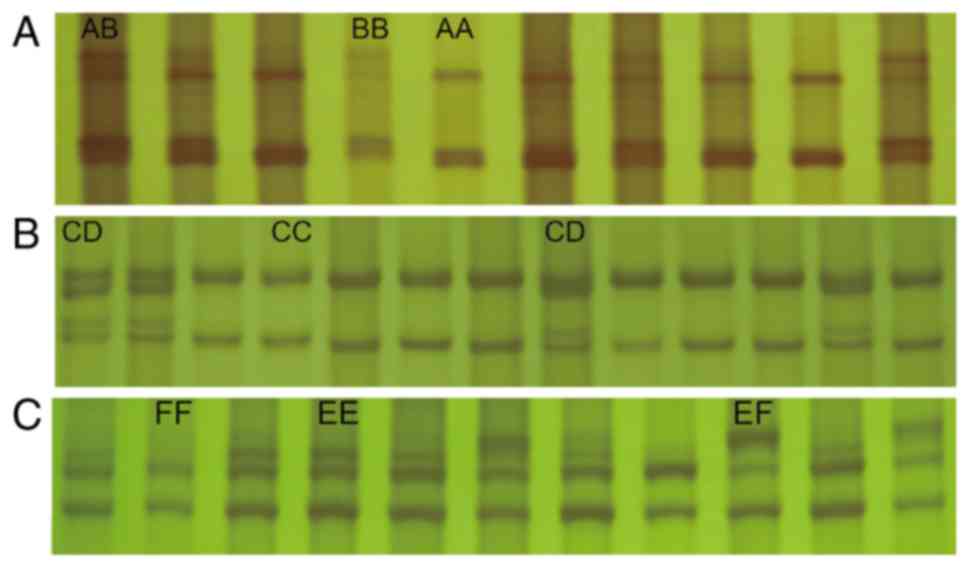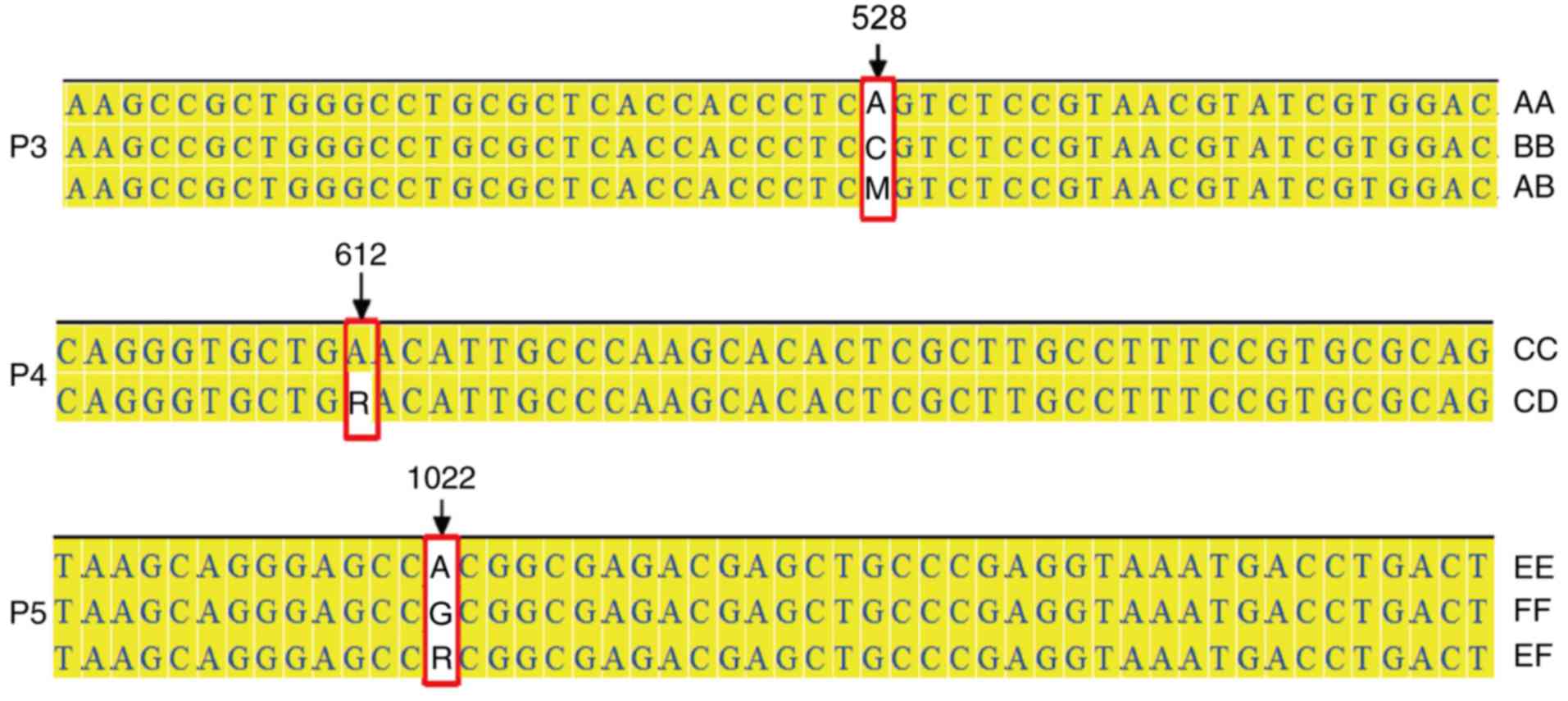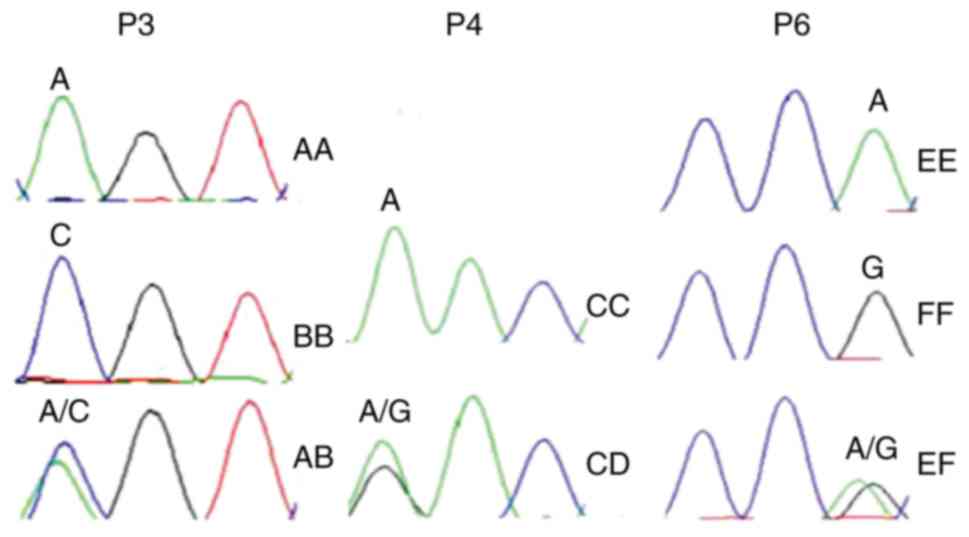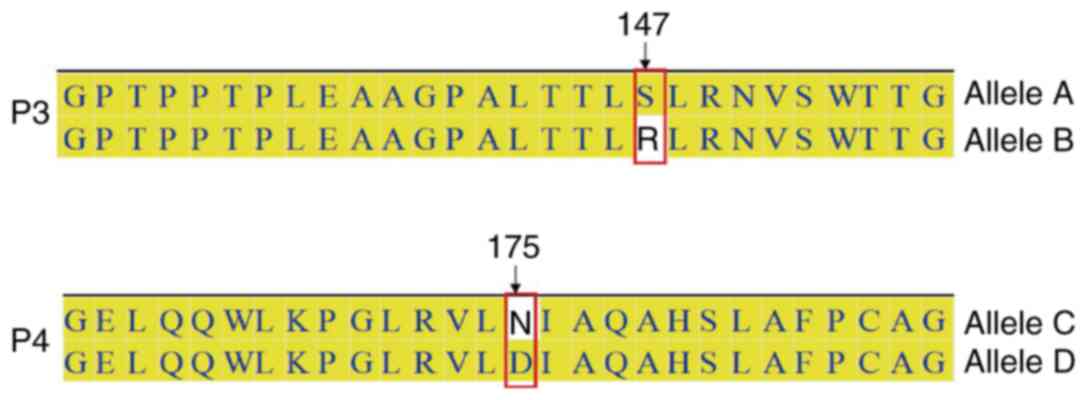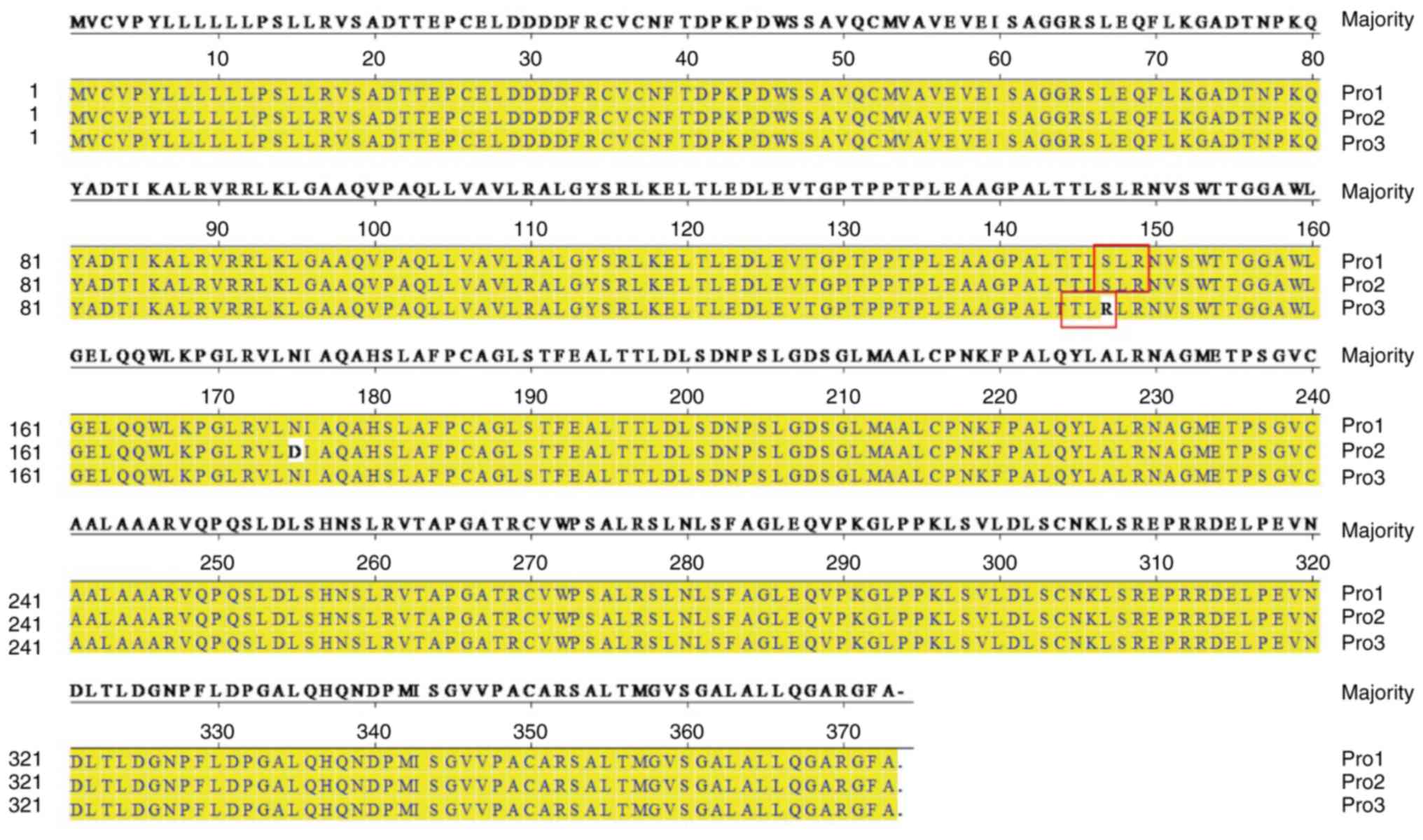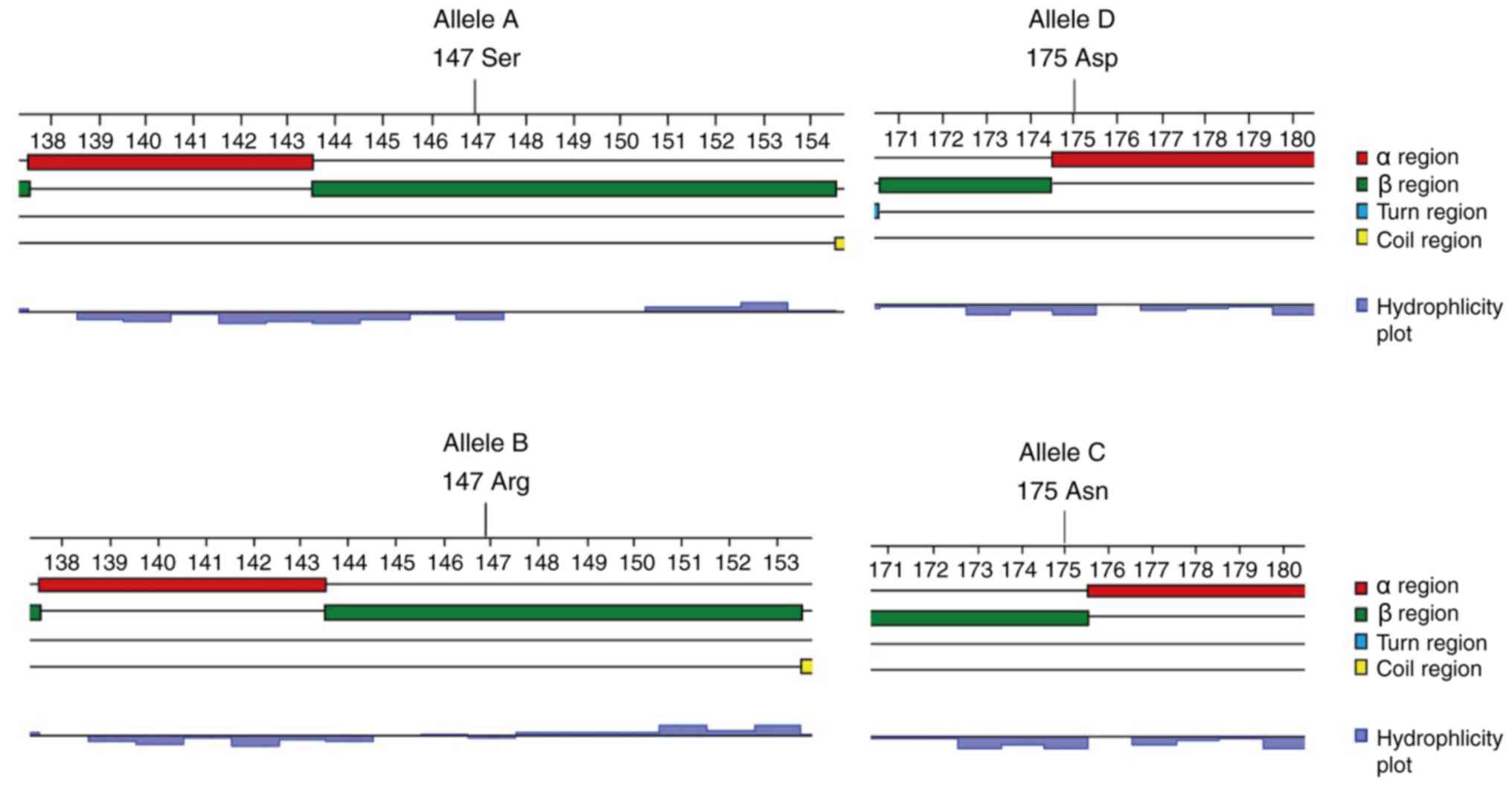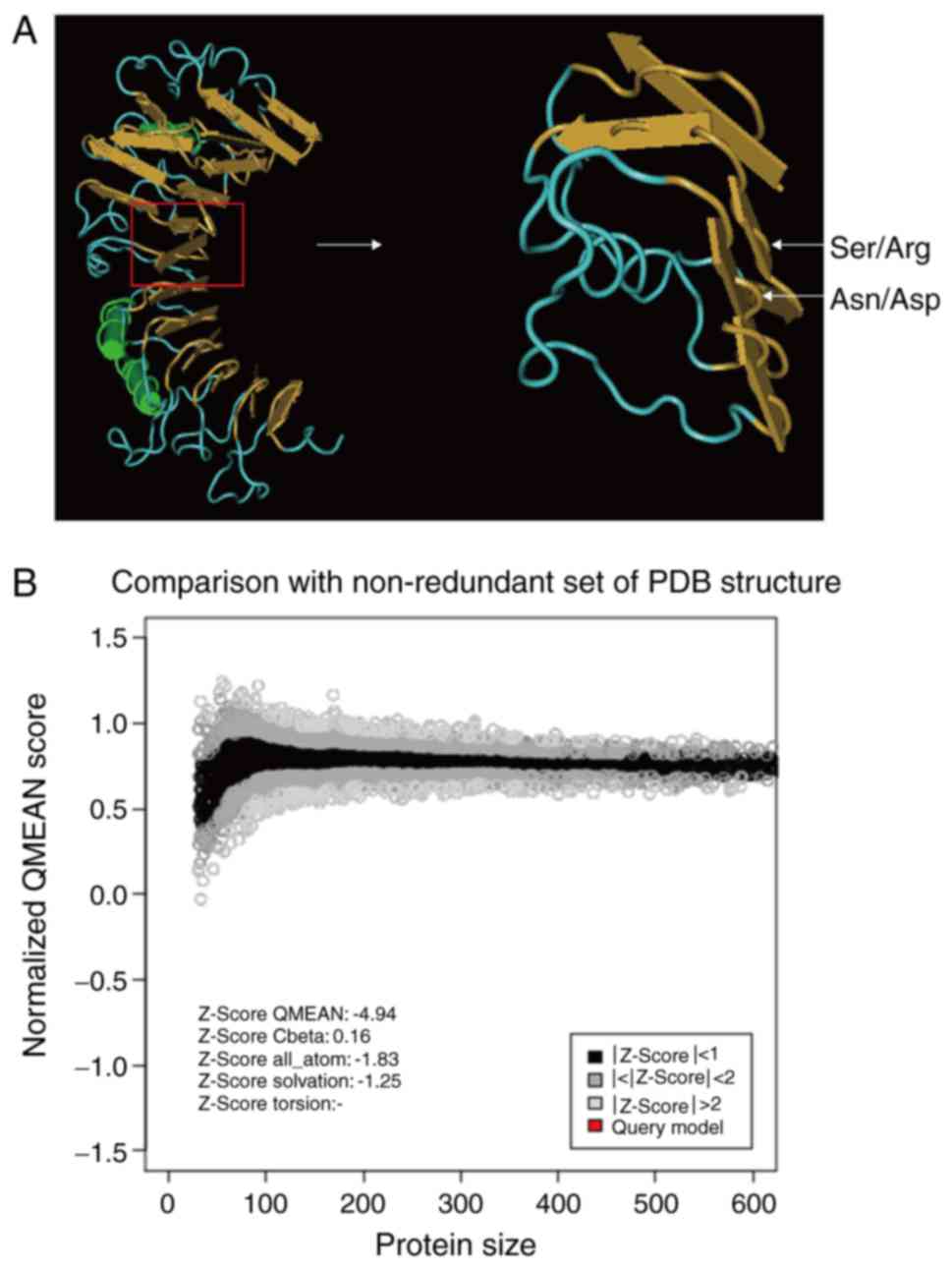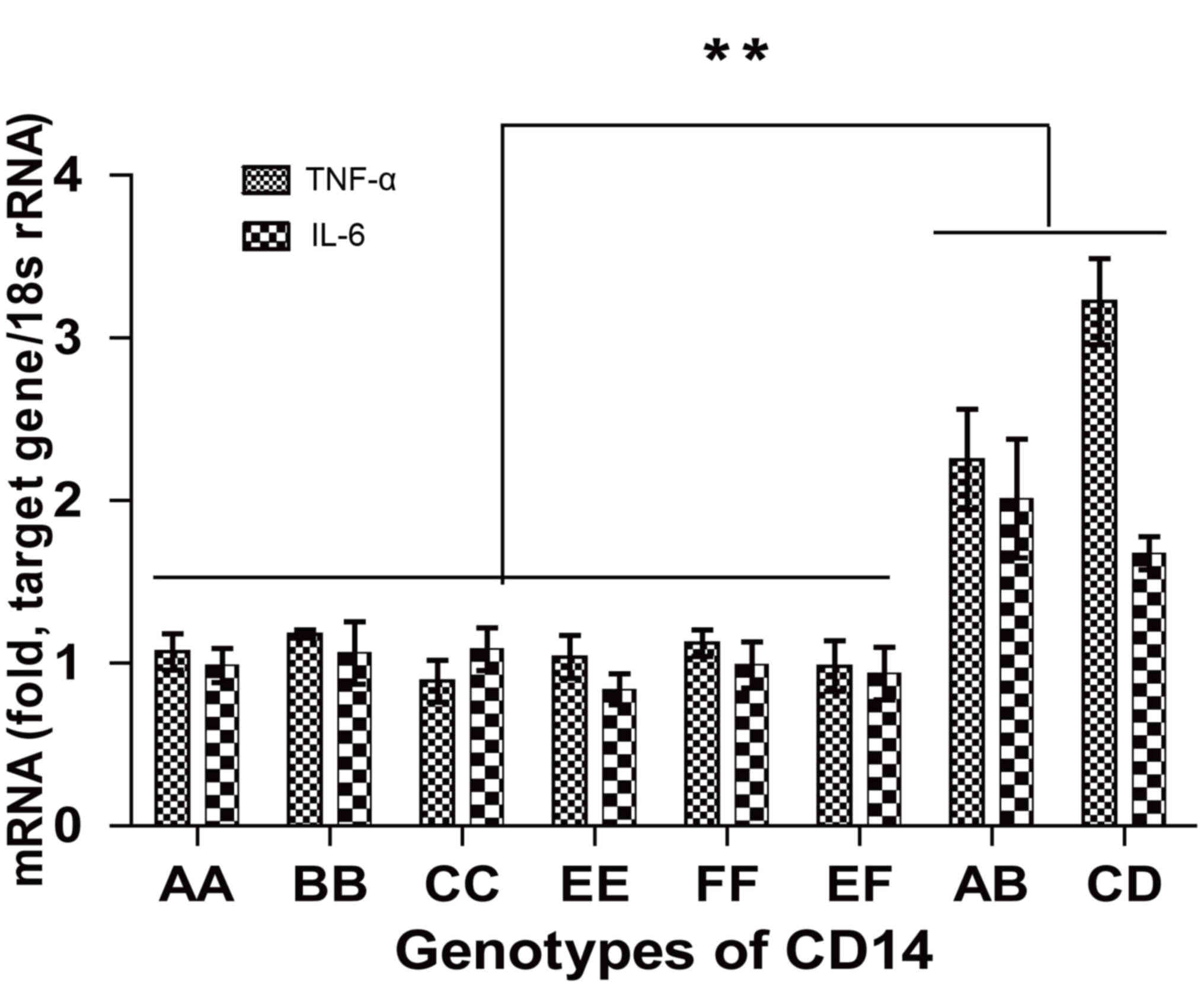|
1
|
Baravalle C, Dallard BE, Cadoche MC,
Pereyra EA, Neder VE, Ortega HH and Calvinho LF: Proinflammatory
cytokines and CD14 expression in mammary tissue of cows following
intramammary inoculation of Panax ginseng at drying off. Vet
Immunol Immunopathol. 144:52–60. 2011. View Article : Google Scholar : PubMed/NCBI
|
|
2
|
Erskine RJ, Tyler JW, Riddell MG Jr and
Wilson RC: Theory, use, and realities of efficacy and food safety
of antimicrobial treatment of acute coliform mastitis. J Am Vet Med
Assoc. 198:980–984. 1991.PubMed/NCBI
|
|
3
|
Ziv G: Treatment of peracute and acute
mastitis. Vet Clin North Am Food Anim Pract. 8:1–15. 1992.
View Article : Google Scholar : PubMed/NCBI
|
|
4
|
Ribeiro MG, Motta RG, Paes AC, Allendorf
SD, Salerno T, Siqueira AK, Fernandes MC and Lara GHB: Peracute
bovine mastitis caused by Klebsiella pneumoniae. Arq Bras Med Vet
Zootec. 60:485–488. 2008. View Article : Google Scholar
|
|
5
|
Cheng J, Li J, Zhang W, Cai Y and Wang G:
Mutations in lipopolysaccharide-binding protein (LBP) gene change
the susceptibility to clinical mastitis in Chinese Holstein. Mol
Biol Rep. 39:9601–9612. 2012. View Article : Google Scholar : PubMed/NCBI
|
|
6
|
Wang Y, Zarlenga DS, Paape MJ and Dahl GE:
Recombinant bovine soluble CD14 sensitizes the mammary gland to
lipopolysaccharide. Vet Immunol Immunopathol. 86:115–124. 2002.
View Article : Google Scholar : PubMed/NCBI
|
|
7
|
Banks KL and Michaels FH: Stimulation and
killing of bovine mononuclear leukocytes by bacterial
lipopolysaccharide (endotoxin). Am J Vet Res. 46:1568–1572.
1985.PubMed/NCBI
|
|
8
|
Chen YC, Wang SY and King CC: Bacterial
lipopolysaccharide inhibits dengue virus infection of primary human
monocytes/macrophages by blockade of virus entry via a
CD14-dependent mechanism. J Virol. 73:2650–2657. 1999.PubMed/NCBI
|
|
9
|
Landmann R, Ludwig C, Obrist R and Obrecht
JP: Effect of cytokines and lipopolysaccharide on CD14 antigen
expression in human monocytes and macrophages. J Cell Biochem.
47:317–329. 1991. View Article : Google Scholar : PubMed/NCBI
|
|
10
|
Erridge C, Guerrero E Bennet and Poxton
IR: Structure and function of lipopolysaccharides. Microbes Infect.
4:837–851. 2002. View Article : Google Scholar : PubMed/NCBI
|
|
11
|
Guerra S, Lohman I Carla, LeVan TD, Wright
AL, Martinez FD and Halonen M: The differential effect of genetic
variation on soluble CD14 levels in human plasma and milk. Am J
Reprod Immunol. 52:204–211. 2004. View Article : Google Scholar : PubMed/NCBI
|
|
12
|
Van Miert A.S.J.P.A.M.: Acute phase
response and non cellulardefence mechanisms. Flemish Vet J.
62:69–72. 1991.
|
|
13
|
Beamer LJ, Carroll SF and Eisenberg D: The
three-dimensional structure of human
bactericidal/permeability-increasing protein: Implications for
understanding protein-lipopolysaccharide interactions. Biochem
Pharmacol. 57:225–229. 1999. View Article : Google Scholar : PubMed/NCBI
|
|
14
|
Loppnow H, Stelter F, Schonbeck U,
Schluter C, Ernst M, Schutt C and Flad HD: Endotoxin activates
human vascular smooth muscle cells despite lack of expression of
CD14 mRNA or endogenous membrane CD14. Infect Immun. 63:1020–1026.
1995.PubMed/NCBI
|
|
15
|
Pugin J, Ulevitch RJ and Tobias PS:
Activation of endothelial cells by endotoxin: Direct versus
indirect pathways and the role of CD14. Prog Clin Biol Res.
392:369–373. 1995.PubMed/NCBI
|
|
16
|
Qureshi ST, Lariviere L, Leveque G,
Clermont S, Moore KJ, Gros P and Malo D: Endotoxin-tolerant mice
have mutations in Toll-like receptor 4 (TLR-4). J Exp Med.
189:615–625. 1999. View Article : Google Scholar : PubMed/NCBI
|
|
17
|
Lee JW, Paape MJ, Elsasser TH and Zhao X:
Recombinant soluble CD14 reduces severity of intramammary infection
by Escherichia coli. Infect Immun. 71:4034–4039. 2003. View Article : Google Scholar : PubMed/NCBI
|
|
18
|
Burvenich C, Van Merris V, Mehrzad J,
Diez-Fraile A and Duchateau L: Severity of E. colimastitis is
mainly determined by cow factors. Vet Res. 34:521–564. 2003.
View Article : Google Scholar : PubMed/NCBI
|
|
19
|
Hartel CH, Finas D, Ahrens P, Kattner E,
Schaible T, Muller D, Segerer H, Albrecht K, Moller J, Diedrich K,
et al: Polymorphisms of genes involved in innate immunity:
Association with preterm delivery. Mol Hum Reprod. 10:911–915.
2004. View Article : Google Scholar : PubMed/NCBI
|
|
20
|
Donati M, Berglundh T, Hytonen AM,
Hahn-Zoric M, Hanson LA and Padyukov L: Association of the −159
CD14 gene polymorphism and lack of association of the −308 TNFA and
Q551R IL-4RA polymorphisms with severe chronic periodontitis in
Swedish Caucasians. J Clin Periodontol. 32:474–479. 2005.
View Article : Google Scholar : PubMed/NCBI
|
|
21
|
Nishimura S, Zaitsu M, Hara M, Yokota G,
Watanabe M, Ueda Y, Imayoshi M, Ishii E, Tasaki H and Hamasaki Y: A
polymorphism in the promoter of the CD14 gene (CD14/-159) is
associated with the development of coronary artery lesions in
patients with Kawasaki disease. J Pediatr. 143:357–362. 2003.
View Article : Google Scholar : PubMed/NCBI
|
|
22
|
Rosas-Taraco AG, Revol A, Salinas-Carmona
MC, Rendon A, Caballero-Olin G and Arce-Mendoz AY: CD14 C (−159) T
polymorphism is a risk factor for development of pulmonary
tuberculosis. J Infect Dis. 196:1698–1706. 2007. View Article : Google Scholar : PubMed/NCBI
|
|
23
|
Pal A, Sharma A, Bhattacharya TK,
Chatterjee PN and Chakravarty AK: Molecular characterization and
SNP detection of CD14 gene of crossbred cattle. Mol Biol Int.
2011:5073462011. View Article : Google Scholar : PubMed/NCBI
|
|
24
|
Huang P, Lu C, Li J, Xu J, Liu Z, Wang Q,
Wang Z, Huo J, Li H, Teng Y, et al: Mutations in HSP70-2 gene
change the susceptibility to clinical mastitis in Chinese Holstein.
Gene. 559:62–72. 2015. View Article : Google Scholar : PubMed/NCBI
|
|
25
|
Hopp TP: Protein surface analysis. Methods
for identifying antigenic determinants and other interaction sites.
J Immunol Methods. 88:1–18. 1986. View Article : Google Scholar : PubMed/NCBI
|
|
26
|
Hopp TP: Retrospective: 12 years of
antigenic determinant predictions and more. Pept Res. 6:183–190.
1993.PubMed/NCBI
|
|
27
|
Schwede T, Kopp J, Guex N and Peitsch MC:
SWISS-MODEL: An automated protein homology-modeling server. Nucleic
Acids Res. 31:3381–3385. 2003. View Article : Google Scholar : PubMed/NCBI
|
|
28
|
Guex N and Peitsch MC: SWISS-MODEL and the
Swiss-Pdb Viewer: An environment for comparative protein modelling.
Electrophoresis. 18:2714–2723. 1997. View Article : Google Scholar : PubMed/NCBI
|
|
29
|
Arnold K, Bordoli L, Kopp J and Schwede T:
The SWISS-MODEL workspace: A web-based environment for protein
structure homology modelling. Bioinformatics. 22:195–201. 2006.
View Article : Google Scholar : PubMed/NCBI
|
|
30
|
Beutler B and Poltorak A: Positional
cloning of Lps, and the general role of toll-like receptors in the
innate immune response. Eur Cytokine Netw. 11:143–152.
2000.PubMed/NCBI
|
|
31
|
Smirnova I, Poltorak A, Chan EK, McBride C
and Beutler B: Phylogenetic variation and polymorphism at the
toll-like receptor 4 locus (TLR-4). Genome Biol. 1:RESEARCH0022000.
View Article : Google Scholar : PubMed/NCBI
|
|
32
|
Michel O, LeVan TD, Stern D, Dentener M,
Thorn J, Gnat D, Beijer ML, Cochaux P, Holt PG, Martinez FD, et al:
Systemic responsiveness to lipopolysaccharide and polymorphisms in
the toll-like receptor 4 gene in human beings. J Allergy Clin
Immunol. 112:923–929. 2003. View Article : Google Scholar : PubMed/NCBI
|
|
33
|
Frey EA, Miller DS, Jahr TG, Sundan A,
Bazil V, Espevik T, Finlay BB and Wright SD: Soluble CD14
participates in the response of cells to lipopolysaccharide. J Exp
Med. 176:1665–1671. 1992. View Article : Google Scholar : PubMed/NCBI
|
|
34
|
Pugin J, Schurer-Maly CC, Leturcq D,
Moriarty A, Ulevitch RJ and Tobias PS: Lipopolysaccharide
activation of human endothelial and epithelial cells is mediated by
lipopolysaccharide-binding protein and soluble CD14. Proc Natl Acad
Sci USA. 90:pp. 2744–2748. 1993; View Article : Google Scholar : PubMed/NCBI
|
|
35
|
McKenna TM, Li S and Tao S: PKC mediates
LPS- and phorbolinduced cardiac cell nitric oxide synthase activity
and hypocontractility. Am J Physiol. 269:H1891–H1898.
1995.PubMed/NCBI
|
|
36
|
Kim JK, Lee SM, Suk K and Lee WH: A novel
pathway responsible for lipopolysaccharide-induced translational
regulation of TNF-α and IL-6 expression involves protein kinase C
and fascin. J Immunol. 187:6327–6334. 2011. View Article : Google Scholar : PubMed/NCBI
|
|
37
|
Kim JH, Lee J, Oh B, Kimm K and Koh I:
Prediction of phosphorylation sites using SVMs. Bioinformatics.
20:3179–3184. 2004. View Article : Google Scholar : PubMed/NCBI
|
|
38
|
Ibeagha-Awemu EM, Lee JW, Ibeagha AE and
Zhao X: Bovine CD14 gene characterization and relationship between
polymorphisms and surface expression on monocytes and
polymorphonuclear neutrophils. BMC Genet. 9:502008. View Article : Google Scholar : PubMed/NCBI
|
|
39
|
Paape MJ, Lilius EM, Wiitanen PA, Kontio
MP and Miller RH: Intrammary defense against infections induced by
Escherichia coli cows. Am J Vet Res. 57:477–482. 1996.PubMed/NCBI
|
|
40
|
Cleveland MG, Gorham JD, Murphy TL,
Toumanen E and Murphy KM: Lipoteichoic acid preparations of
gram-positive bacteria induce interleukin-12 through a
CD14-dependent pathway. Infect Immun. 64:1906–1912. 1996.PubMed/NCBI
|
|
41
|
De Schepper S, De Ketelaere A, Bannerman
DD, Paape MJ, Peelman L and Burvenich C: The toll-like receptor-4
(TLR-4) pathway and its possible role in the pathogenesis of
Escherichia coli mastitis in dairy cattle. Vet Res. 39:52008.
View Article : Google Scholar : PubMed/NCBI
|
|
42
|
Shin HJ, Lee H, Park JD, Hyun HC, Sohn HO,
Lee DW and Kim YS: Kinetics of binding of LPS to recombinant CD14,
TLR4 and MD-2 proteins. Mol Cells. 24:119–124. 2007.PubMed/NCBI
|















